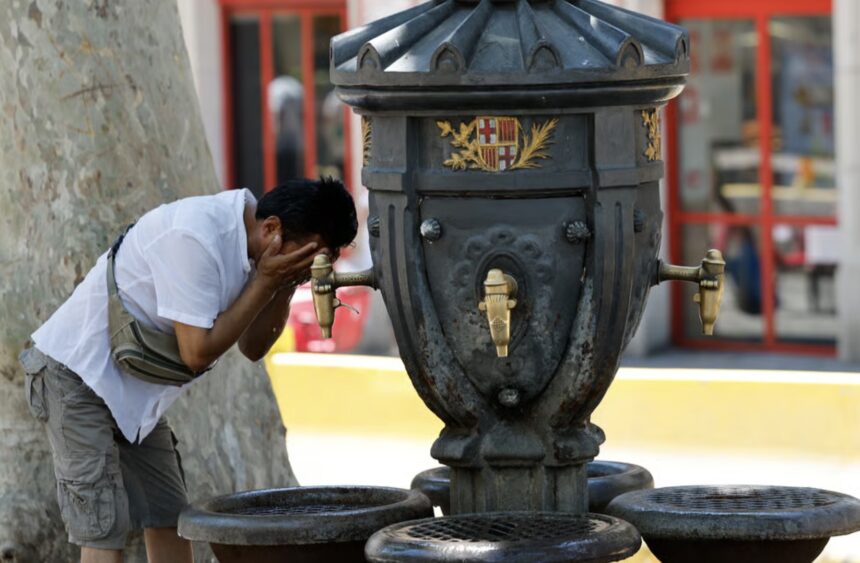Europe must act swiftly to cope with extreme heat as temperatures soar above 40°C, with thousands of excess deaths projected in the coming days.
Southern Europe is currently experiencing a scorching heatwave, with temperatures reaching up to 46°C in Spain’s Huelva region—a new national record for June. Meanwhile, Italy, Greece, Portugal, and the Western Balkans are also grappling with searing temperatures, massive wildfires, and civilian casualties.
WHO’s Dire Forecast and Expert Projections
A World Health Organization (WHO) expert issued a stark warning on Monday, calling for more action to prevent tens of thousands of “unnecessary and largely preventable” deaths.
“It’s no longer a question of whether we will have a heatwave, but how many we will have this year and how long they will last,” said Marisol Yglesias Gonzalez, Technical Officer for Climate Change and Health at WHO in Bonn.
Regarding the number of people at risk, Pierre Masselot, a statistician at the London School of Hygiene & Tropical Medicine, told POLITICO that this heatwave could cause over 4,500 additional deaths between June 30 and July 3. The countries expected to experience the highest rates of excess deaths are Italy, Croatia, Slovenia, and Luxembourg, he added. “The worst days will be Tuesday and Wednesday.”
Heat claims the lives of more than 175,000 people annually in the WHO’s European region, spanning from Iceland to Russia. A significant study co-authored by Masselot and published in January, which analyzed 854 European cities, warned that heat-related deaths would increase significantly if climate adaptation is not prioritized.
Climate Change Link and Regional Alerts
The WHO reiterated on Monday that climate change, driven by the burning of fossil fuels, will lead to more frequent, dangerous, and intense heatwaves, resulting in more serious illnesses and deaths.
Nearly two-thirds of Spanish cities are under health risk warnings, including 804 areas at the highest alert level, according to data from the national weather agency Aemet. A spokesperson announced that the intense heat will persist across the country until July 3. Meanwhile, heat warnings have also been issued for France, Italy, Portugal, and Greece.
The Greek government has also issued warnings for air pollution caused by wildfires affecting coastal cities near Athens. Meanwhile, over 50,000 people have been evacuated in Turkey, primarily due to a large fire near Izmir.
In Albania, 26 new fire outbreaks were reported between Sunday and Monday, while in Serbia, meteorologists stated that last Thursday was the hottest day since records began in the 19th century.
WHO Recommendations and Preparedness Gap
The WHO advises staying hydrated, avoiding midday heat, and keeping indoor environments cool, especially for vulnerable groups, including the elderly, children, outdoor workers, pregnant women, and those with chronic health conditions. Those using medications like antidepressants or blood pressure drugs should be especially cautious, Yglesias Gonzalez added, as these can affect the body’s ability to regulate temperature.
However, simply managing heatwaves when they occur is not enough; greater preparedness is crucial, the WHO emphasized. A 2022 survey revealed that only 21 out of 57 countries in the WHO European region reported having a national heatwave health plan. Of these, only 14 were EU members.
Among the WHO’s key recommendations, early warning systems and public information campaigns are the most widely implemented. However, countries are lagging in preparing their healthcare systems and in preventing heat exposure through better urban planning, Yglesias Gonzalez noted. The WHO plans to publish updated guidelines for governments next year, including advice on “people-centered cooling” strategies at urban and regional levels to protect populations from heat, Politico reports.







